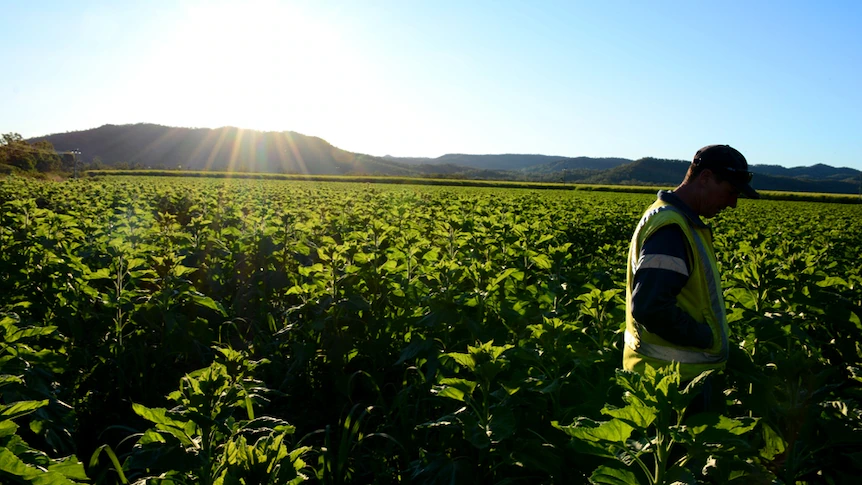By Warwick Long
Copyright abc

Farmers say they are already adapting to threats to food supply outlined in the first National Climate Risk Assessment, but support is needed for swifter action.
The report identified shifting growing seasons, rising interruptions to supply chains from natural disasters and damage to crops and livestock from extreme heat as key threats to food supply in a warmer climate.
Ahead of new climate targets expected to be released this week, grower groups say the $94 billion industry is part of the solution, but they warn urgent support will be needed.
Food for thought
The National Climate Risk Assessment rated the current risk to primary industries and the food system as moderate to high, rising to high to very high by 2050.
The impact on agriculture would “cascade and increase risks to other systems” like the economy and global trade, it said, leading to domestic food security vulnerabilities in the long term.
“For example, impacts may be felt in public health and safety, including in reduced food security in some areas, and in the mental health of producers and associated communities,” the assessment said.
“However, it remains uncertain whether current technological improvements and uptake will be adequate to address the risks posed by future climate changes.”
Farmers for Climate Action represents almost 8,500 farmers and has 80,000 community supporters across the country.
Chief executive Natalie Collard said governments needed to back up concerns about climate impacts on regional communities with policies to support agriculture.
“It’s not just about economics, it’s about families and, quite frankly, the future of regional Australia,” she said.
“Every farming region is already impacted today and we’re looking at extremely concerning results.”
She said farmers were already adapting to the changing climate and reducing their emissions, but support was needed.
“What we’re hoping government will do with this new data is invest in climate smart farming adaptation, invest in regional infrastructure and have a strong agriculture and land sector plan.”
Northern exposure
The assessment projected greater warming in Northern Australia, with Queensland home to 18 of the 20 most exposed regions.
Shane McCarthy, the president of farm lobby AgForce Queensland, said farmers should be seen as adaptable and part of the solution.
“In order to be able to produce food and fibre to the standard that we already produce it, as some of the best in the world, we need the ability to adapt and adapt quickly,” he said.
“Every producer I know, they intimately know their land — my advice to government is talk to industry, involve them in the conversation early because these guys know their land better than anybody else.”
The federal government also released a National Adaptation Plan, which acknowledged its role to provide targeted assistance.
Chief executive of Queensland Farmers’ Federation Jo Sheppard said building preparedness and response capabilities for farmers was good for everyone.
‘Smarter’ support wanted in drought
She said farmers had already adapted their soil management, water infrastructure, energy efficiency and crop rotation, but the new data would further enhance risk management.
“I think the next steps are that we use some of this work that’s been done to inform our adaptation plans,” she said.
“We have been making good progress … but we’ve still got a lot of work to do.”
The assessment said ongoing improvements across the sector had demonstrated a “willingness and capability to respond to change”, but current approaches may not be enough to keep pace.
Victorian Farmers’ Federation president Brett Hosking said he had faith the sector could tackle the challenges through research and development.
But he said state and federal governments needed “smarter” policies to support farmers during climate events such as drought.
“[To] make sure that our farmers have the ability to recover really quickly and be prepared for the next event but also maintain their productivity through these challenges as well,” he said.
Call for biofuels investment
Among those policies in need of action was biofuels, according to Canegrowers Queensland chief executive Dan Galligan.
“[That] would also build regional economies and support the industry, but actually we’re not seeing enough movement on that.
“Every sugar mill in the country is generating electricity, but the policies, the tariff structures, the rules around that don’t support mills being able to do more of that.”



